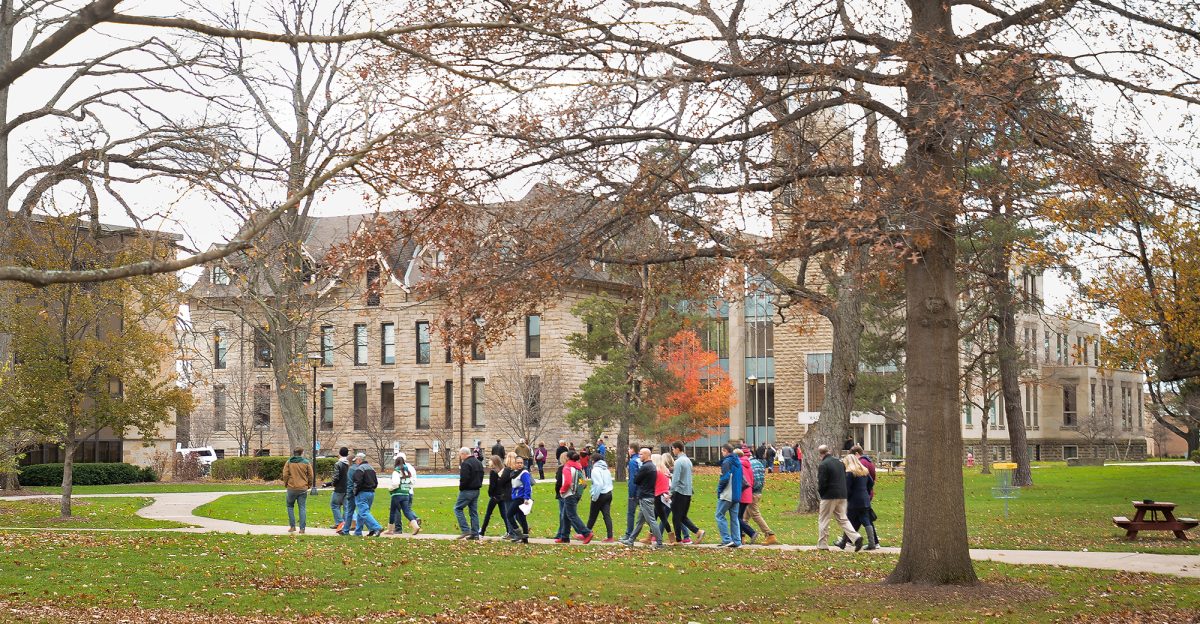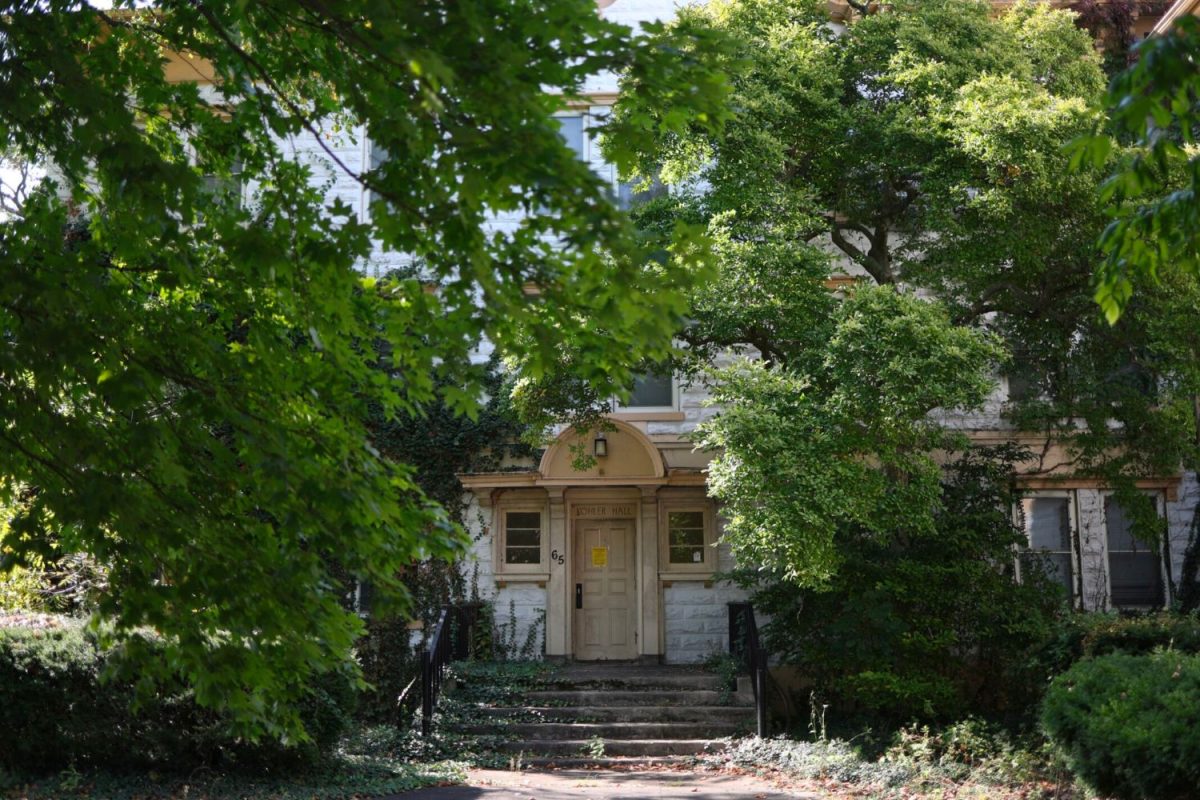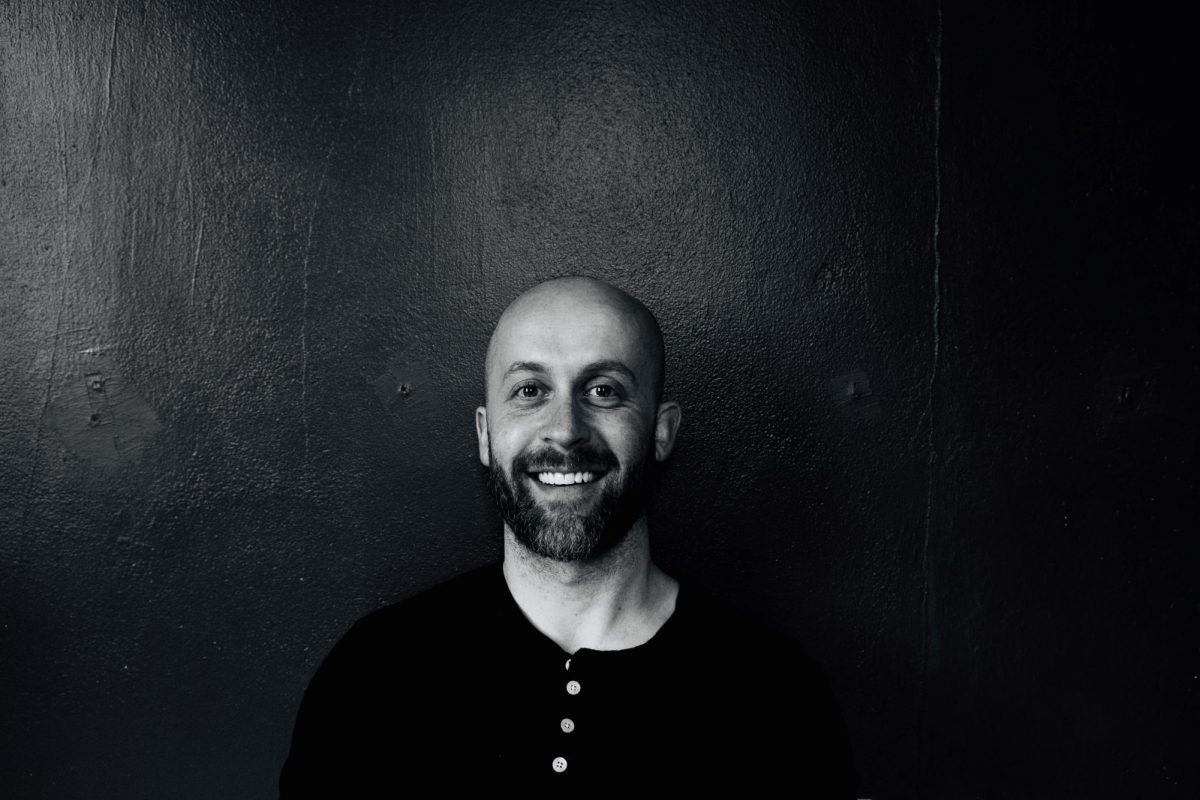Editor’s Note: Baldwin Wallace Interim President Tom Sutton initially told The Exponent that the Center for Inclusion was being eliminated; however, the university says that Sutton “misspoke,” and that the CFI still exists, albeit in a new form. We have adjusted this story to reflect that. We have also adjusted this story to note while no other CFI staff were eliminated, several prominent faculty and staff of color did receive layoff notices. The university said all other diversity-related staffing and CFI resources remain the same outside the elimination of BW’s chief diversity officer.
Baldwin Wallace University recently announced changes to its Center for Inclusion, a critical resource for promoting diversity, inclusion and student advocacy on campus.
The announcement was made on Oct. 1 and included details regarding letting go Dr. Randi Congleton, BW’s chief diversity and inclusion officer. This announcement was met with disappointment and concern by students, faculty and staff alike.
The changes to the CFI are part of a larger cost-cutting strategy driven by BW’s ongoing budget deficit.
“These decisions were not made lightly,” BW’s Interim President Tom Sutton said. “Unfortunately, we are in a situation where we had to make cuts across the board, including those that impact diversity and inclusion.”
Several prominent faculty and staff of color, including Vice President for Student Affairs Timeka Rashid, were also eliminated in the university’s restructuring.
While Sutton acknowledged the blow to the university’s diversity initiatives, he emphasized that BW remains committed to diversity and inclusion, albeit through a different framework.
“We understand the significance of this loss,” Sutton said. “But we are looking to integrate diversity work into the broader university structure, including collaboration with faculty and staff across departments like student affairs and enrollment management. The goal is to continue supporting our students in new and sustainable ways.”
The changes to the CFI have left many students, especially students of color, feeling uncertain about their future at BW. For Micheal Diamond, a sophomore media production major, the CFI had been a lifeline.
“The CFI was more than just a resource, it was a community,” Diamond said. “It gave me a safe space to express myself and find mentors who understood my experiences as a person of color. Now, I feel like that support is being ripped away from me.”
Courtney Robinson, who served as the associate director of cultural programming, inclusion, and belonging at the CFI, echoed Diamond’s feelings.
“The CFI was essential to so many students, particularly those of color, because it provided a space where they could be themselves, build community and receive support,” Robinson said.
Robinson was informed of the decision via official university communication and expressed her disappointment, but noted that she and her team are committed to continuing the work in a new format under the restructured system.
“It’s heartbreaking that students are losing this resource, but we are exploring new ways to carry this work forward,” Robinson said. “However, the transition will be difficult, and we need everyone to step up to fill the void left by the CFI.”
To maintain diversity and inclusion efforts, BW is looking to expand its Diversity, Equity and Inclusion work across departments, including student affairs and academic divisions.
Sutton confirmed that Robinson will continue to contribute to these efforts in a broader capacity, although her future role remains under review.
“We are working with our faculty and staff to ensure diversity remains a central focus of the university, even though the model is changing,” Sutton said. “We’re still figuring out what this will look like in practice, but the need for inclusion across our community is more important than ever.”
However, some student leaders are concerned about how the changes to the CFI will impact student-led organizations that were closely supported by the center.
Elanna Su, president of the Asian Student Alliance, pointed out that without the CFI’s support, organizations like ASA may struggle to maintain their momentum.
“The CFI was a key resource for student organizations like ASA,” Su said.
“We need faculty and staff to step up and provide more resources for these student-led groups if we are going to continue advocating for diversity and inclusion on campus.”
In addition to student organizations, many students like Diamond are questioning what will happen to the safe spaces and mentoring opportunities that the CFI provides.
“I’m not sure where we’ll turn now for that kind of support,” Diamond said. “Other organizations like Black Student Alliance or the LGBTQ+ groups are great, but none of them can replicate the CFI’s role completely.”
BW has faced significant financial challenges in recent years, which prompted the tough decision to eliminate positions and reallocate resources.
The changes to the CFI and the diversity positions are part of a broader restructuring aimed at addressing a growing budget deficit.
Sutton said that while diversity is a core value at BW, the university must balance its financial needs with its commitment to inclusion.
“We are at a crossroads,” Sutton said. “While we will continue to prioritize diversity and inclusion, we must do so in a way that is financially sustainable. That means making difficult decisions now to ensure the university’s long-term viability.”
Despite the changes, Sutton reassured students that BW would continue to support diversity initiatives through other channels. Programming related to LGBTQ+ rights, sexual assault prevention and faith-based initiatives will continue throughout the academic year.
“We are committed to keeping our diversity programming in place for the rest of the academic year,” Sutton said. “We will also form a committee to oversee student affairs and inclusion efforts, and we will involve faculty and staff in ensuring these initiatives continue.”
While the future of BW’s diversity efforts remains uncertain, students, faculty and staff are continuing to call for a clear commitment to inclusivity and support for marginalized communities.
Many students are organizing to ensure their voices are heard, including Diamond, who has started a student-run group called EUPHORIA, a BIPOC queer club, to help provide community for students of color and LGBTQ+ students.
“The work of diversity and inclusion isn’t over, but it’s up to us now to make sure it continues,” Diamond said. “We’ll continue to advocate for the resources we need to thrive, and we’ll hold the university accountable.”
As BW moves forward with these changes, the university will need to ensure that its longstanding commitment to diversity is not diminished.
Disability efforts by the university will be increased and programming for the faith-based, LGBTQ+, sexual assault awareness and the Center for Inclusion will continue throughout the 2024-2025 academic year.
Additionally, in a diversity, equity and inclusion forum held by BW, it was confirmed that Robinson will stay in the Black Cultural Center.
The road ahead may be challenging, but students and faculty alike are determined to ensure that diversity, equity, and inclusion remain at the heart of the BW experience.





































RLNenonene • Dec 4, 2024 at 12:25 pm
As an Alumni, I am disappointed by this decision. Budgets become ethical documents and speak to what organizations value. This will shift the culture and I don’t think for the best in terms of inclusion, access, equity and support.
Trevor Allen • Dec 4, 2024 at 11:59 am
Perhaps decisions like this are why BW is in the precarious spot it’s in. This is such disappointing news.
Jeff West, MD • Dec 4, 2024 at 11:18 am
In the hostile political climate of today, is this the “message” that BW wants to send? A white flag of defeat, or worse yet of “acceptance “??